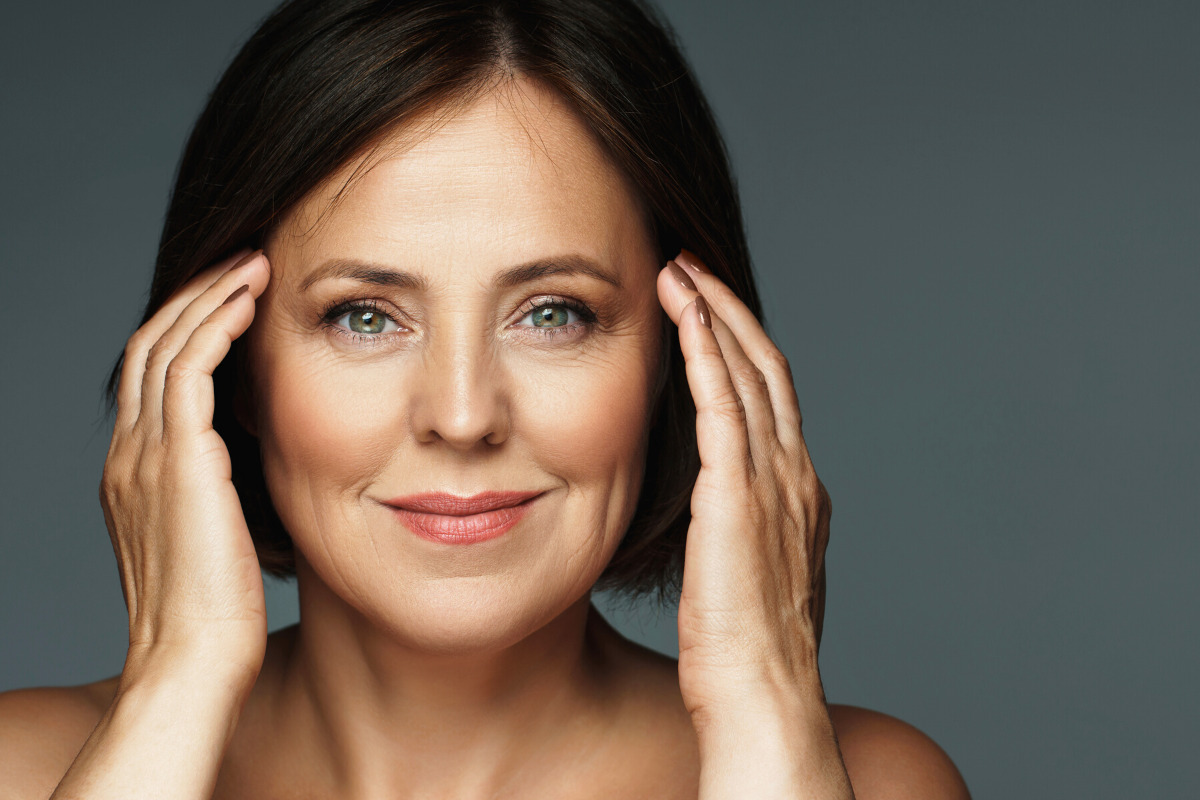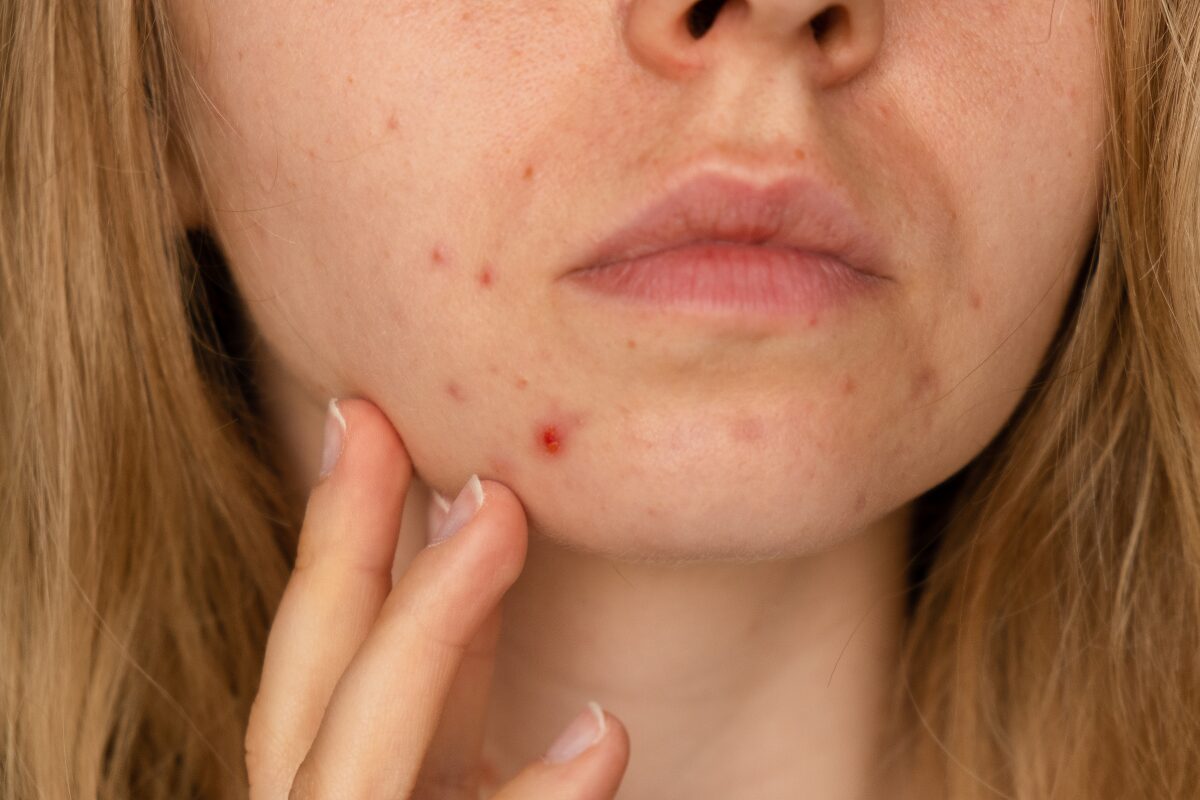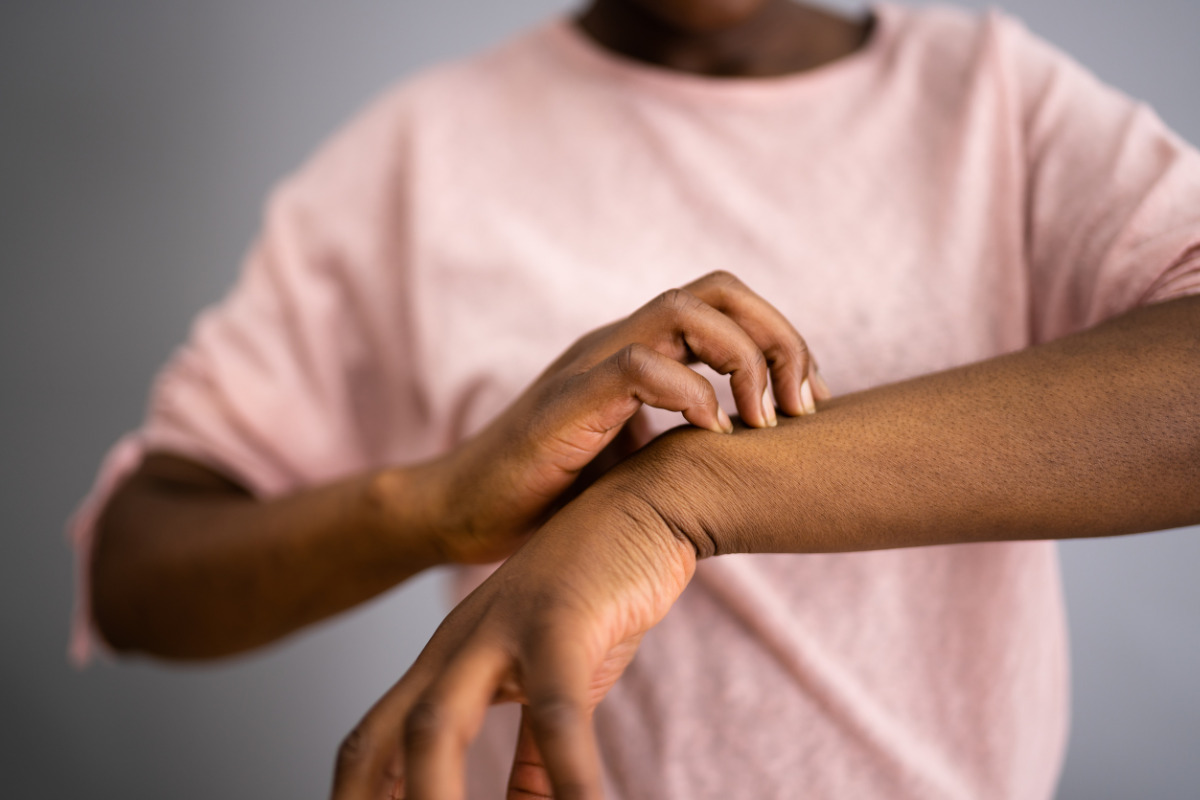Managing Sensitive Menopausal Skin

The years leading to menopause, known as perimenopause, is the stage when our hormones typically start to become erratic. Expect to start seeing changes in your skin during perimenopause, which generally starts around your early to mid-40s.
You’ve reached menopause after twelve consecutive months without a period that’s not due to another cause. Menopause comes with many physical changes. The skin, for one, is noticeably affected, as seen by the changes on our faces, necks, arms, and legs: dryness, roughness, irritation, and sunspots.
While menopause is a normal part of aging, age need not show up on our skin prematurely. A good skincare routine can help take care of dryness and spots and keep you feeling fresh and young.
Let’s first dive into the causes of menopause-related skin issues:
What Happens to Menopause Skin?
As the years pass, we lose the elastic fibers and collagen responsible for keeping the skin’s structure firm and stretchy.
Then there’s the issue of hormonal changes- our estrogen level plummets and significantly affects skin appearance. We lose facial fat as we age, and the skin’s pH level becomes more alkaline.
All these contribute to the skin becoming more sensitive and prone to certain conditions. Menopause skin is more easily irritated and requires special care.
Common Skin Issues During Menopause
Dryness
When our estrogen level drops, our skin’s natural oil production slows down, along with its water retention capability. This results in dry skin that looks dull and may even be flakey.
Itchy Skin
Itchy skin is generally caused by extreme dryness. It is also caused by rashes, allergies, and infections like shingles, warts, cellulitis, acne, etc. Menopause skin becomes less acidic, making the skin more prone to bad bacteria.
Rosacea
Rosacea is an inflammation of the skin condition that causes the face to flush more than usual and may also cause acne. This is more common in lighter-skinned women and shows redness and rashes around the nose and cheek areas.
Sunken Cheeks and Eyes
Less facial fat results in those sunken cheeks and eyes where there used to be effortless plumpness and glow.
Tingling
Menopause skin may sometimes experience a tingling sensation caused by hormonal changes in the body. This tingling and numbness are often felt in the hands, arms, feet, and legs.
Bruising
Reduced estrogen levels can cause skin thinning, making it prone to bruising. There’s less padding to cushion the skin from bumps, so it’s easier to develop contusions and discolorations, and they may not heal as quickly as in the past.
Sunspots
Exposure to the sun’s UV rays adversely affects menopausal skin and manifests its reaction through pigmentation, skin growths, or skin cancer. Make sure to get an annual skin check-up and be sure to report any changes in skin growths to your healthcare clinician.
Wrinkles and Sagging Skin
The menopause skin’s declining collagen and elastin is what causes the changes in our skin’s texture and appearance. Fine lines and wrinkles begin to appear, setting on our faces like permanent fixtures. Also, the skin loses its ability to spring back to form when stretched, causing it to sag over time.
How to Take Care of Menopause Skin
Fortunately, there are several things you can do to improve your skin and maintain a healthy glow as you age.
Use Sunscreen
Sun exposure is the top environmental factor negatively impacting the skin and increases your risk of skin cancer. Put on a broad-spectrum sunscreen with at least 30 SPF, especially when you’re going out in the sun. Avoid the midday sun or use protection like oversized sunglasses, a hat, or an umbrella, to lessen its harsh effects on sensitive menopausal skin.
Moisturize
The skin needs hydration so drink lots of water and topically apply skin moisturizers like facial cream, serum, and body lotion. Opt for products that contain hyaluronic acid and glycerin to bind water to the skin, and emollients like shea butter, plant oils, mineral oils, and fatty acids to lock moisture in. Use fragrance-free products to avoid skin irritation.
Use Mild Cleansers
Strong antibacterial facial cleansers can alter the skin’s microbiome. When good bacteria are destroyed by harsh products, bad bacteria can freely grow and cause infections. This can cause acne, rashes, and itch. Also, when cleansing the skin, avoid hot water as it can be drying to the skin.
Supplement Collagen
You can help your skin with its collagen deficit by supplementing it with skincare products containing retinol and niacinamide. This power duo, along with hyaluronic acid, can work together to reduce wrinkles while minimizing pores.
Product Reset
Reevaluate your products as they may not be well-suited to the needs of aging skin. A good esthetician can help guide you or check out one of the new brands specializing in skincare for women 40+. We like Pause Well-Aging, Womaness, and Caire Beauty to name a few.
Live Healthfully
At the end of the day, products and a good skincare routine can only get you so far. Experts agree that a healthy lifestyle is often much more influential on the health of your skin and how well it ages. That means staying out of the sun, quitting smoking if you smoke, eating a healthy plant-forward diet, getting eight hours of sleep each night, and managing your stress level.
Take Control Of the Way You Age
We are anti anti-aging because we think the aging process is a beautiful and wonderful thing, but when it comes to your skin, you can control its appearance and any discomfort. Your skin’s health and beauty largely depend on your discipline, apart from genetics. Keep a healthy lifestyle, stick to a good skincare routine, and use only products that promote your skin’s wellness with safe and effective ingredients. Enjoy the skin you’re in at any age!
For more tips on managing menopause symptoms and healthy aging, visit us at Midday.Health.
Keren Dinkin loves words and the power they hold, which explains her passion for writing. Keren is based in California. When she is not at her desk whipping up compelling narratives and sipping on endless cups of coffee, you can find her curled up with a book, playing with her dog, or pottering about in the garden.
We curate products to keep you abreast of new technologies, emerging science, and things we think are interesting or cool. Midday is a participant in the Amazon Affiliate Program, a program designed to provide a means for sites to earn fees by linking to Amazon.com. If you purchase a product from Amazon or another affiliate program we participate in, we earn a small commission from qualifying purchases that help us provide information and services to our users. We have not always tested these products and can’t validate their claims. We update links when possible, but note that deals can expire and all prices are subject to change. The decision is yours, and whether or not you decide to buy something is completely up to you.
Sign up for more unique women’s health content
By submitting this form, you agree to the Lisa Health Privacy Policy and Terms of Use


